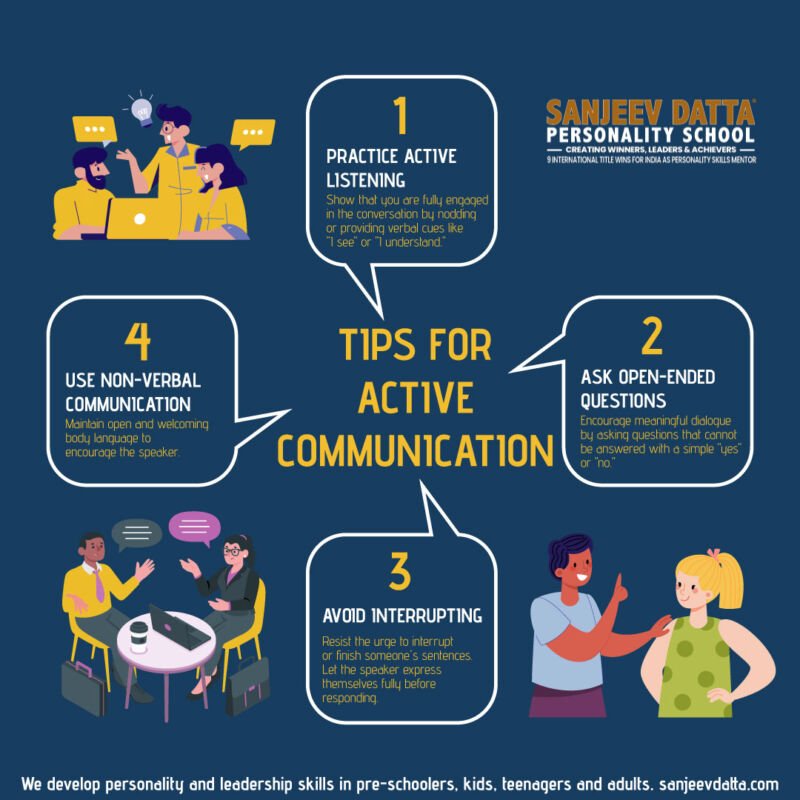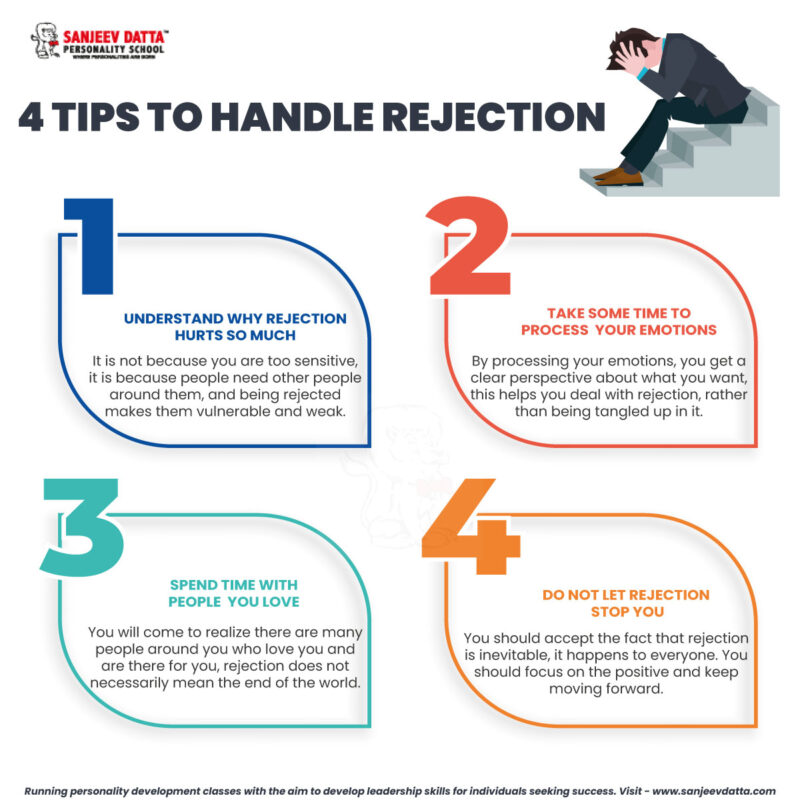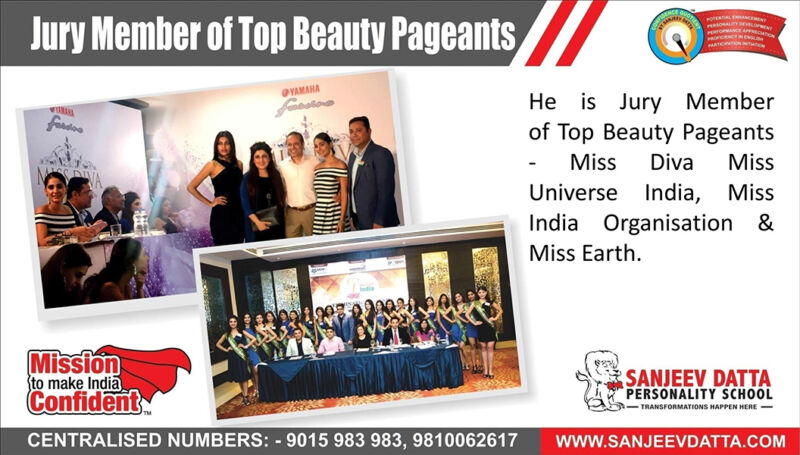Here’s something they don’t tell you in college: your degree gets you in the door, but it’s your soft skills that get you the job—and keep you employed. I’ve spoken with dozens of recruiters, hiring managers, and HR professionals, and they all say the same thing: technical skills and degrees are becoming commodities. Everyone has them. What separates candidates who get offers from those who get rejection emails? The soft skills recruiters value that most professionals completely overlook. These aren’t the obvious ones you’ve heard a million times—”be a good communicator” or “work well in teams.” We’re diving into the underrated, often-ignored abilities that make recruiters sit up and think, “We need this person on our team.”
Why Soft Skills Now Trump Hard Credentials?
Let’s start with some reality: the job market has fundamentally changed. A decade ago, having the right degree from the right school practically guaranteed employment. Today? There are thousands of candidates with similar degrees, certifications, and technical skills applying for the same positions.
Recruiters can’t differentiate based on credentials alone anymore. So they’ve shifted focus to something harder to fake and more valuable in the long run—soft skills.
According to LinkedIn’s Global Talent Trends report, 92% of talent professionals say soft skills matter as much or more than hard skills. And here’s the kicker: 89% of recruiters say bad hires typically fail because they lack soft skills, not technical abilities.
The soft skills recruiters value are the ones that determine whether you’ll thrive in their company culture, adapt when things change, influence others, and grow into leadership positions. These skills predict long-term success far better than any degree ever could.
1. Adaptive Communication: Reading the Room
Notice I didn’t just say “communication skills.” Everyone lists that on their resume. What recruiters actually value is adaptive communication—the ability to adjust your communication style based on who you’re talking to and what the situation demands.
This means:
- Explaining technical concepts simply to non-technical stakeholders
- Knowing when to be direct versus diplomatic
- Adjusting your tone for emails versus in-person conversations
- Reading body language and adjusting accordingly
- Communicating bad news without creating panic
A software developer who can explain architecture decisions to executives in business terms? That’s gold. A marketing specialist who can translate creative ideas into ROI projections for the finance team? Even better.
Recruiters spot this skill during interviews when candidates tailor their answers based on who’s asking. If you’re giving the same canned responses to the CEO, the technical lead, and HR, you’re missing the mark.
2. Proactive Problem-Solving: Finding Issues Before They’re Assigned
Here’s a skill that separates average employees from exceptional ones: proactive problem-solving. Most people solve problems when asked. The ones who get promoted—and recruited aggressively—identify and solve problems before anyone realizes they exist.
This is one of the most valuable soft skills recruiters value because it demonstrates:
- Initiative and ownership mentality
- Critical thinking and pattern recognition
- Business acumen and strategic thinking
- Responsibility beyond your job description
During interviews, demonstrate this by sharing examples where you:
- Identified a potential issue before it became critical
- Implemented a solution without being asked
- Improved a process that wasn’t technically your responsibility
- Anticipated challenges and prepared contingencies
Recruiters love candidates who think like business owners, not just employees clocking in and out.

3. Emotional Regulation: Keeping Your Cool Under Pressure
Let’s be real—workplaces are pressure cookers. Deadlines crunch, clients complain, projects fail, and tensions run high. The ability to manage your emotions and remain level-headed when everything’s falling apart is worth its weight in gold.
Emotional regulation is different from “staying positive” or “being nice.” It’s about:
- Not taking feedback personally
- Responding thoughtfully rather than reacting defensively
- Managing frustration when things don’t go your way
- Maintaining professionalism during conflicts
- Staying focused when stressed
Recruiters assess this through behavioral questions about conflict, failure, or stressful situations. They’re listening for how you processed emotions, what you learned, and whether you placed blame or took accountability.
One recruiter told me she specifically asks, “Tell me about a time you completely disagreed with your manager’s decision.” She’s not interested in the disagreement—she wants to see emotional maturity in how you handled it.
For professionals looking to systematically develop these crucial abilities, enrolling in a comprehensive personality development course provides structured learning environments where emotional intelligence, communication techniques, and professional presence are cultivated through expert guidance. These courses offer practical exercises, real-world simulations, and personalized feedback that accelerate skill development far beyond what self-study alone can achieve. The investment in professional training pays dividends throughout your career as these foundational skills compound over time.

4. Humble Confidence: The Goldilocks Trait
This might sound contradictory, but bear with me. Recruiters are simultaneously turned off by arrogance and lack of confidence. What they’re looking for is that sweet spot—humble confidence.
Humble confidence means:
- Acknowledging your strengths without bragging
- Admitting what you don’t know without apologizing
- Taking credit for achievements while recognizing team contributions
- Being open to feedback without being defensive
- Expressing competence without superiority
In interviews, this shows up as candidates who can say, “I led the project that increased revenue by 30%, though I couldn’t have done it without our design team’s creative approach and our data analyst’s insights into customer behavior.”
This is one of those soft skills recruiters value tremendously because it indicates coachability, team compatibility, and leadership potential. Arrogant people create toxic environments. Insecure people need constant hand-holding. Humble confidence? That’s the sweet spot.
5. Strategic Ambiguity Tolerance: Thriving in the Gray Areas
Most people want clear instructions, defined processes, and specific expectations. But modern workplaces? They’re messy, ambiguous, and constantly changing. Companies increasingly value people who can operate effectively when the path isn’t clear.
Ambiguity tolerance involves:
- Making progress without perfect information
- Being comfortable with evolving priorities
- Functioning when processes aren’t established
- Pivoting when plans change suddenly
- Making judgment calls with incomplete data
This skill has become especially critical post-pandemic as remote work, digital transformation, and rapid market changes created unprecedented uncertainty.
Demonstrate this in interviews by discussing times you:
- Started a project with unclear requirements and figured it out
- Successfully navigated a major company change
- Made a decision without having all the information you wanted
- Adapted when priorities shifted mid-project
Recruiters recognize that people with high ambiguity tolerance are the ones who’ll innovate, launch new initiatives, and handle whatever curveballs the market throws.
ways to evaluate professional agility
6. Active Listening: Beyond Just Hearing Words
Everyone thinks they’re a good listener. Almost no one actually is. Active listening—truly understanding what someone means, not just what they say—is shockingly rare and incredibly valuable.
Active listening means:
- Focusing completely on the speaker without planning your response
- Asking clarifying questions to ensure understanding
- Picking up on what’s not being said
- Paraphrasing to confirm comprehension
- Remembering details from previous conversations
During interviews, recruiters test this by seeing if you actually answer their questions or just recite prepared responses. Do you reference something they mentioned earlier? Do you ask thoughtful follow-up questions? Do you build on previous conversation points?
This is one of the soft skills recruiters value because poor listening causes miscommunication, mistakes, and conflicts. Great listeners build trust, avoid errors, and make people feel valued—which is essential for teamwork, client relations, and leadership.
7. Contextual Awareness: Understanding the Bigger Picture
Technical experts often get so focused on their specialty that they lose sight of the broader business context. Contextual awareness—understanding how your work fits into larger organizational goals—sets you apart dramatically.
This involves:
- Knowing how your role impacts other departments
- Understanding your company’s strategic priorities
- Recognizing industry trends affecting your organization
- Seeing how individual tasks connect to business outcomes
- Making decisions aligned with company objectives
Show this by discussing not just what you did, but why it mattered to the business. Instead of “I reduced code deployment time by 40%,” try “I reduced deployment time by 40%, which allowed us to respond to customer feedback faster and ultimately decreased our churn rate by 15%.”
Recruiters love this because people with contextual awareness make better decisions, prioritize effectively, and communicate more persuasively with stakeholders across the organization.
benefits of personality development for entrepreneurs
8. Graceful Failure Recovery: Bouncing Back Better
Everyone fails. The difference between professionals who advance and those who plateau? How they handle failure.
Graceful failure recovery means:
- Acknowledging mistakes quickly and honestly
- Focusing on solutions rather than excuses
- Extracting lessons without dwelling on blame
- Maintaining performance after setbacks
- Using failures to improve systems and processes
This is absolutely one of the soft skills recruiters value most, though it’s rarely discussed openly. They want people who fail fast, learn faster, and come back stronger.
Demonstrate this skill by sharing a genuine failure story in interviews—not a humble brag disguised as weakness (“I work too hard”), but a real mistake. Then focus 80% of your answer on what you learned and implemented differently afterward.
One hiring manager told me she automatically advances candidates who own their failures authentically and demonstrate growth. It signals maturity, accountability, and resilience—all critical for long-term success.
Developing these nuanced interpersonal abilities requires more than awareness—it demands practice and refinement. Investing in personality development skills through structured programs provides professionals with frameworks for self-assessment, targeted improvement strategies, and measurable progress tracking. These skills—emotional intelligence, resilience, and professional presence—don’t develop overnight but through deliberate practice and expert mentorship. Professionals who prioritize personality development position themselves for leadership opportunities and career acceleration that credentials alone cannot deliver.

9. Cross-Cultural Fluency: Navigating Diverse Environments
With remote work and global teams becoming standard, cross-cultural fluency has evolved from “nice to have” to essential. This goes beyond basic cultural sensitivity to actually understanding and adapting to different cultural contexts.
Cross-cultural fluency includes:
- Recognizing how communication styles vary across cultures
- Understanding different approaches to hierarchy and decision-making
- Adapting work styles for international collaboration
- Showing genuine curiosity about different perspectives
- Navigating cultural differences without stereotyping
You don’t need international experience to demonstrate this. Show it through:
- Working effectively with diverse teams
- Adapting your approach for different personality types
- Showing awareness that your perspective isn’t universal
- Asking questions when you don’t understand the cultural context
Recruiters increasingly value this as companies expand globally and workforces diversify. Someone who can bridge cultural gaps becomes invaluable for team cohesion, client relationships, and international expansion.

10. Strategic Networking: Building Genuine Professional Relationships
Here’s the skill nobody wants to admit matters: strategic networking. Not the sleazy, transactional “collect business cards” kind—genuine relationship-building that creates mutual value over time.
Strategic networking means:
- Building relationships before you need them
- Offering help without expecting immediate returns
- Staying connected with people across your career
- Leveraging relationships appropriately and respectfully
- Creating win-win opportunities
Recruiters value this because professionals with strong networks:
- Bring connections that benefit the company
- Get things done faster through relationships
- Stay informed about industry developments
- Generate opportunities (partnerships, clients, talent)
The interesting thing? Your network itself demonstrates this skill. If multiple people recommend you for a position or refer you to recruiters, that’s social proof that you’re someone people want to work with and advocate for.
How These Skills Show Up in the Hiring Process?
Understanding what soft skills recruiters value is one thing. Demonstrating them during the hiring process is another. Here’s where these skills actually get assessed:
- Resume review: Communication, attention to detail, contextual awareness through how you frame achievements
- Phone screening: Adaptive communication, active listening, emotional regulation through how you respond to questions
- Video interviews: All of the above plus how you handle technical difficulties (ambiguity tolerance) and connect virtually (cross-cultural fluency)
- In-person interviews: Everything, especially reading the room, emotional regulation, humble confidence, and active listening
- Case studies or assessments: Problem-solving, ambiguity tolerance, contextual awareness, failure recovery
- Reference checks: All soft skills get validated through others’ experiences with you
Smart candidates demonstrate these skills throughout every touchpoint, not just during formal interviews.
Developing Soft Skills: The Reality Check
Here’s the truth: you can’t develop these soft skills recruiters value by reading one article or taking a weekend workshop. These are muscles that strengthen through consistent practice over time.
Start with self-awareness:
- Which of these ten skills are your strengths?
- Which ones do you struggle with?
- What specific situations trigger your weakest areas?
Then create deliberate practice opportunities:
- Volunteer for projects that stretch your weak areas
- Seek feedback specifically on soft skills, not just outcomes
- Observe people who excel at skills you want to develop
- Reflect regularly on situations where you could have responded better
- Find mentors who embody these qualities
The professionals who advance fastest aren’t necessarily the most technically skilled—they’re the ones who continuously develop these soft skills while others assume they’re “either born with it or not.”
The Competitive Advantage Nobody Talks About
Here’s what makes focusing on soft skills recruiters value such a powerful career strategy: most professionals completely ignore them.
They spend thousands on certifications, degrees, and technical training while their soft skills remain at entry-level. They wonder why they keep getting passed over for promotions or why job offers go to candidates with “less experience.”
Meanwhile, professionals who invest in soft skills development:
- Get recruited for opportunities they didn’t apply for
- Advance faster with fewer technical credentials
- Build reputations that precede them
- Create networks that generate career opportunities
- Adapt successfully as industries and technologies change
These skills also provide recession-proof value. Technical skills become outdated. Degrees lose relevance. But the ability to communicate adaptively, solve problems proactively, regulate your emotions, and build relationships? Those never expire.
The Interview Strategy That Works
When you understand the soft skills recruiters value, you can strategically showcase them in interviews:
- Preparation: Research the company’s culture and challenges. Prepare stories that demonstrate each skill in contexts relevant to their needs.
- STAR method with a twist: Don’t just share Situation-Task-Action-Result. Add a fifth element: Reflection—what you learned and how you’ve applied that lesson since.
- Ask revealing questions: “What soft skills distinguish your top performers from average ones?” or “What interpersonal challenges does this team currently face?” This demonstrates contextual awareness while gathering useful information.
- Show, don’t tell: Instead of saying “I’m a great communicator,” demonstrate it by tailoring your communication style to each interviewer and asking clarifying questions.
- Be authentically imperfect: Share genuine challenges and growth areas. Humble confidence and graceful failure recovery are impossible to demonstrate if you pretend you’re perfect.
The Long Game: Career Compounding
Here’s the beautiful thing about soft skills: they compound over time in ways technical skills don’t.
A certification might help you land one specific role. But emotional regulation, adaptive communication, and strategic networking benefit you across every job, industry, and career stage. These skills make you:
- A leader people want to follow
- A colleague people want to work with
- A professional people want to hire
- A mentor people seek out
- An employee people want to retain
Twenty years from now, most of what you learned in school will be irrelevant. AI might handle many technical tasks. Industries will transform completely. But the soft skills recruiters value today? They’ll still be differentiating successful professionals from everyone else.
Taking Action: Your 90-Day Development Plan
Ready to develop these skills? Here’s a practical roadmap:
Weeks 1-4: Assessment
- Identify your three weakest skills from the ten discussed
- Ask three trusted colleagues for honest feedback on your soft skills
- Observe leaders you admire and note which skills they exemplify
- Document situations where soft skill gaps held you back
Weeks 5-8: Deliberate Practice
- Choose one skill to focus on intensively
- Create specific practice opportunities (lead a meeting, mentor someone, handle a difficult conversation)
- Journal about daily situations where you could have applied the skill better
- Find one resource (book, course, mentor) focused on your target skill
Weeks 9-12: Integration and Expansion
- Continue practicing your first skill while adding a second
- Seek feedback on your progress from people who interact with you regularly
- Update your resume and LinkedIn with examples demonstrating your developed skills
- Practice articulating these skills in mock interview scenarios
Repeat this cycle, continuously adding skills while maintaining previous gains. The professionals who commit to this continuous development process transform their careers in ways degrees alone never could.
components of personal excellence
The Bottom Line
Your degree got you here. Your soft skills will determine where you go next.
The soft skills recruiters value most are learnable, developable, and within your reach—but only if you acknowledge their importance and commit to developing them intentionally. While your peers focus exclusively on technical credentials, you can differentiate yourself with abilities that actually predict success.
These ten underrated skills—adaptive communication, proactive problem-solving, emotional regulation, humble confidence, ambiguity tolerance, active listening, contextual awareness, failure recovery, cross-cultural fluency, and strategic networking—are your competitive advantage in a crowded job market.
Start developing one today. Your future self (and your career trajectory) will thank you.
Frequently Asked Questions (FAQs)
Q. What are the most important soft skills recruiters value in 2025?
The soft skills recruiters value most in 2025 include adaptive communication (adjusting style to different audiences), emotional regulation under pressure, proactive problem-solving, humble confidence, and ambiguity tolerance. These skills have gained importance as remote work, rapid change, and AI automation make technical skills less differentiating. Recruiters increasingly prioritize candidates who can navigate complexity, work across diverse teams, and adapt as circumstances evolve—abilities that degrees and certifications don’t measure.
Q. How can I demonstrate soft skills during job interviews?
Demonstrate soft skills through specific stories using the STAR method (Situation-Task-Action-Result) plus reflection on lessons learned. Use adaptive communication by tailoring responses to different interviewers. Show active listening by referencing earlier conversation points and asking clarifying questions. Display humble confidence by acknowledging team contributions while owning your achievements. Share genuine failure stories to demonstrate graceful recovery. The soft skills recruiters value become evident through how you tell stories, not just what you say.
Q. Are soft skills more important than technical skills for getting hired?
Technical skills typically get you past initial screening, but soft skills determine who gets hired and promoted. According to research, 92% of talent professionals say soft skills matter as much or more than technical abilities, and 89% say bad hires fail due to lacking soft skills, not technical expertise. The reality is technical skills are becoming commoditized—many candidates have similar credentials—while the soft skills recruiters value remain rare and predict long-term success better than degrees.
Q. Can soft skills really be learned or are they innate personality traits?
Soft skills are absolutely learnable, though they require deliberate practice over time rather than classroom study alone. Unlike personality traits, which are relatively stable, skills like emotional regulation, adaptive communication, and contextual awareness can be developed through conscious effort, feedback, mentoring, and real-world application. Thousands of professionals have transformed their careers by systematically developing the soft skills recruiters value, proving these aren’t fixed traits but improvable capabilities.
Q. How long does it take to develop strong soft skills?
Noticeable improvement in specific soft skills can occur within 8-12 weeks of focused practice. However, developing comprehensive mastery across multiple soft skills typically takes 1-2 years of consistent, deliberate effort. The timeline varies based on your starting point, the specific skill, practice frequency, and feedback quality. The soft skills recruiters value most—like emotional regulation and contextual awareness—strengthen continuously throughout your career, similar to physical fitness requiring ongoing maintenance rather than one-time achievement.
Q. Should I list soft skills on my resume?
Don’t simply list soft skills—demonstrate them through achievements and experience descriptions. Instead of writing “excellent communicator,” describe a situation requiring adaptive communication: “Translated technical architecture decisions into business impact presentations for C-suite stakeholders, securing $500K budget approval.” Show the soft skills recruiters value through results they enabled, not generic claims. Save explicit soft skill discussion for cover letters and interviews where you can provide context and stories.
Q. How do recruiters actually assess soft skills during hiring?
Recruiters assess soft skills through behavioral interview questions asking about specific past situations, observing communication style and emotional responses during interviews, checking how candidates interact with everyone from reception to executives, analyzing thought processes during case studies or problem-solving exercises, and validating claims through reference checks. They look for consistency between what candidates claim and how they actually behave throughout the hiring process. The soft skills recruiters value emerge through demonstration, not declaration.
Q. What’s the difference between soft skills and personality traits?
Soft skills are learned, developable capabilities (like active listening or failure recovery) while personality traits are inherent characteristics (like introversion or openness). You can improve soft skills through practice; personality traits remain relatively stable throughout life. However, certain personality traits can support specific soft skill development—for example, naturally curious people might find cross-cultural fluency easier to develop. Importantly, professionals with any personality type can develop the soft skills recruiters value through appropriate strategies and practice.
Q. Which soft skills are most valuable for remote work environments?
For remote work, recruiters particularly value adaptive communication (navigating different digital channels effectively), proactive problem-solving (identifying issues without physical proximity), ambiguity tolerance (thriving with less direct oversight), emotional regulation (managing isolation and digital communication challenges), and strategic networking (building relationships without in-person interaction). These soft skills recruiters value for remote positions predict success in distributed teams where self-direction, clear communication, and relationship-building require extra intentionality.
Q. How can I prove I have soft skills without previous work experience?
Demonstrate the soft skills recruiters value through volunteer work, academic projects, extracurricular leadership, personal projects, or even challenging life experiences. A student who organized a community fundraiser demonstrates project management, emotional regulation under pressure, and strategic networking. Someone who managed family responsibilities while studying shows ambiguity tolerance and proactive problem-solving. Focus on transferable situations where you exhibited these skills, even outside traditional employment contexts. Results and reflections matter more than the setting.


